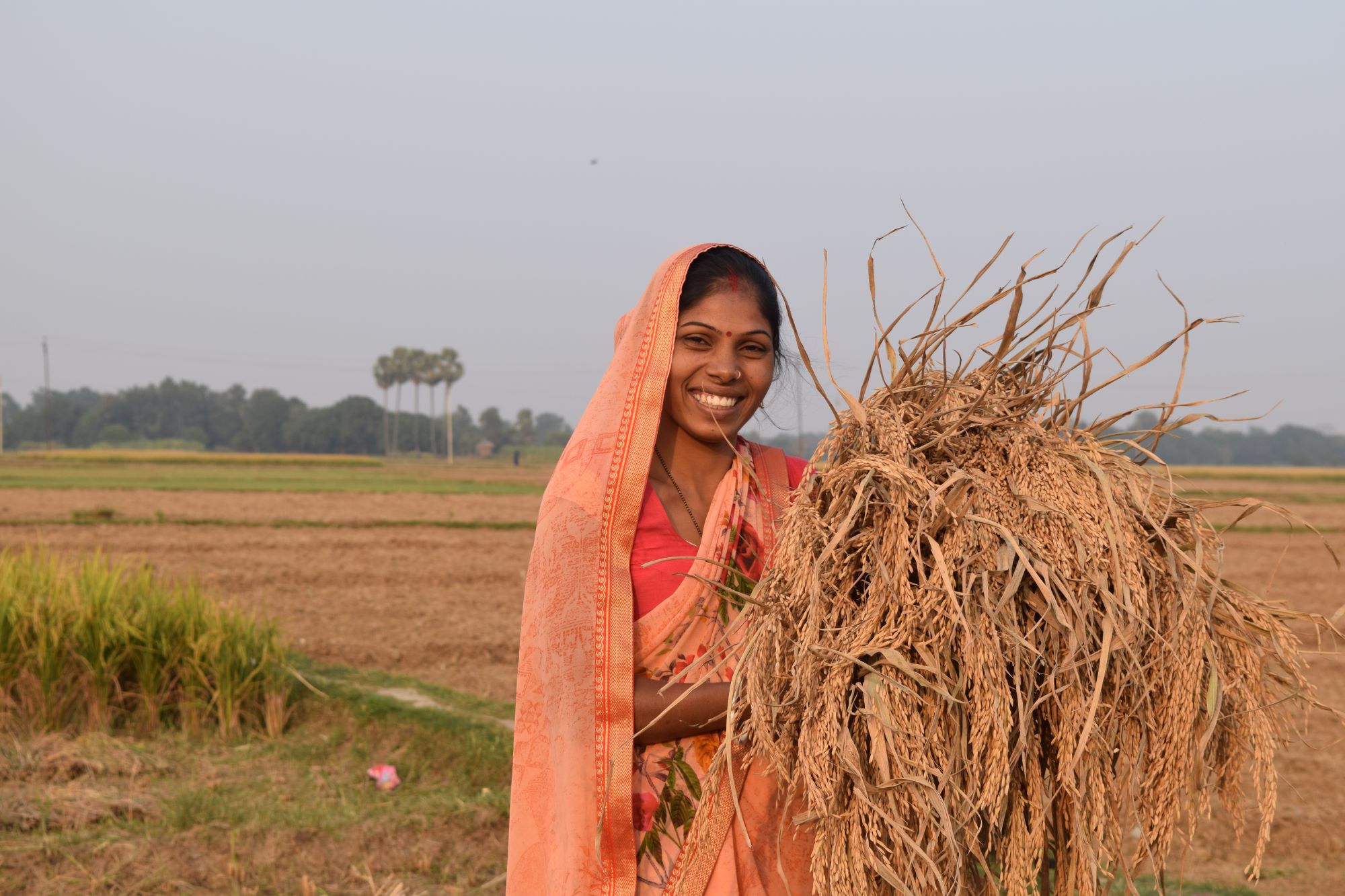The SENU project aims to improve the nutrition situation of women and young children from vulnerable communities in the states of Madhya Pradesh and Maharashtra, India
The Indo-German “Securing Nutrition, Enhancing Resilience (SENU) – India” project is one out of 10 countries of the Global Programme on Food and Nutrition Security implemented by Deutsche Gesellschaft für Internationale Zusammenarbeit (GIZ) GmbH, and part of the German Federal Ministry for Economic Cooperation and Development’s (BMZ) special initiative “ONE WORLD – No hunger”.
SENU implements a nutrition-sensitive integrated approach linking nutritional education with a multisectoral Community Nutrition Gardens (CNGs) initiative that aims at improving the dietary diversity of women of childbearing age (15-49 years) and small children (6-23 months) and supports government partners through technical assistance and capacity building to improve nutritional outcomes. The initiative has reached out to 424,000 women and women of child-bearing age, pregnant and lactating women and 86,000 young children (6-23 months) in Madhya Pradesh and Maharashtra.
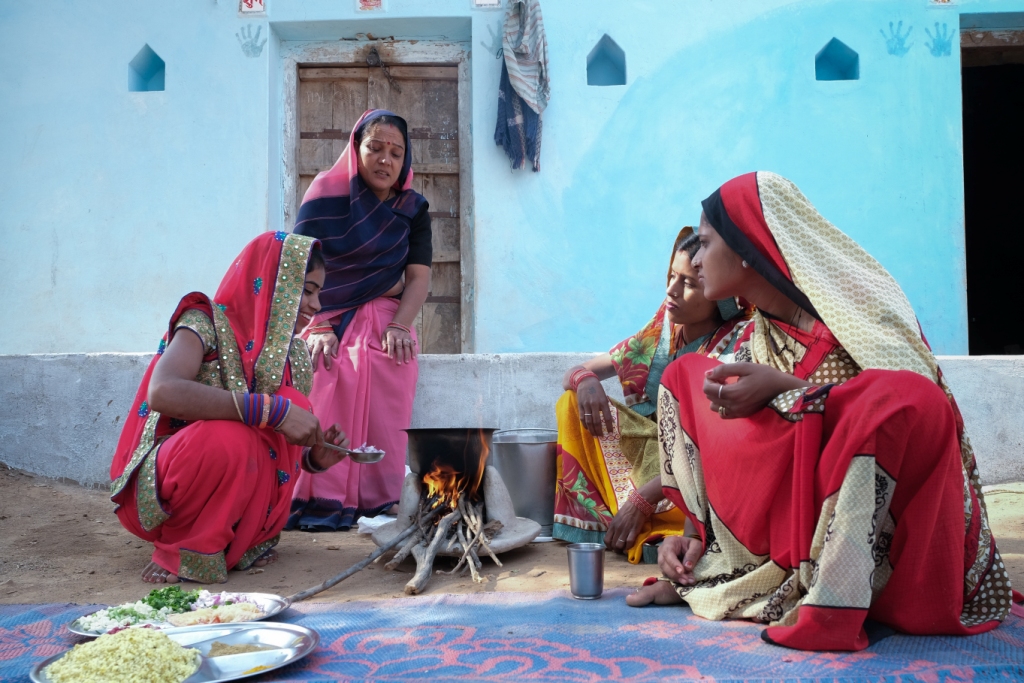
SENU implements a comprehensive Social and Behaviour Change (SBC) approach throughout its project activities. Based on evidence from qualitative and quantitative studies that SENU conducted, a project SBC strategy was developed to guide the nutrition sensitive integrated approach towards effective promotion of good nutrition, hygiene, and food production practices. Key barriers and enablers of these practices were identified. Best practices were selected based on their potential to contribute to improved nutrition (impact) and seamless adoption by target groups (feasibility). Consequently, core activities of the project were adapted: e.g., the Nutrition-Participatory Learning and Action (N-PLA) training modules were revised. The sessions will also be facilitated at CNG sites and are now more focused on lowering identified barriers and strengthening enablers not only with women, but other important household members such as grandmothers and fathers, through targeted SBC messages.
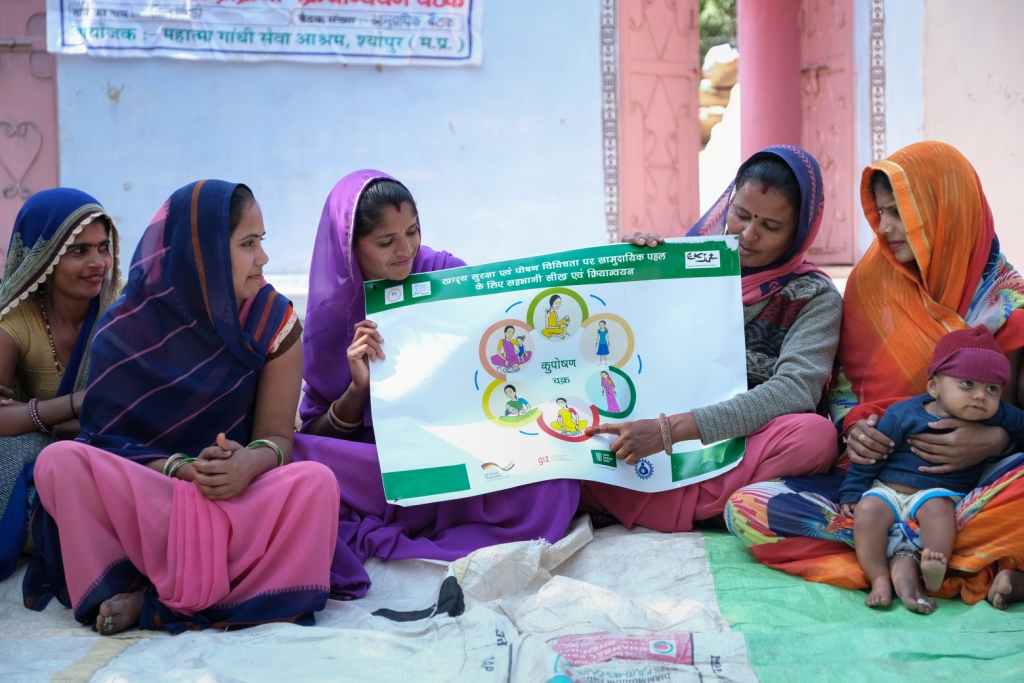
Jointly with the Department of Women and Child Development (DWCD), Madhya Pradesh, SENU developed a state-specific comprehensive SBC policy and strategy. DWCD works on 17 issues under three core thematic areas of nutrition, health, and hygiene; child protection; and gender equality and women empowerment. The SBC policy provides a strategic approach for addressing behavioural aspects of individuals, families and communities that affect issues such that departmental efforts get a stronger impetus to achieve the targeted outcomes. The policy guided the department to plan interventions that address cross-cutting and specific barriers such as gender, women agency, attitude towards malnutrition and work towards collective responsibility, rebranding Anganwadi Centres as resource centres and promotion of the thematic areas as core rights.
Impact
The systematic SBC approach led to lowering of locally-identified barriers and strengthening enablers through evidence-based targeted messages and tailored activities. This approach helped to identify gender inequalities as a root cause and cross-cutting issue of lack of good nutrition, hygiene, and food production practices. The SBC strategy at programme and policy level now guides the way activities are planned and rolled out, e.g., strengthening male engagement and role of stakeholders became the primary theme of this year’s National Nutrition Month celebration, in alignment with the existing government directives. Furthermore, capacity building and incremental learning became a focus.
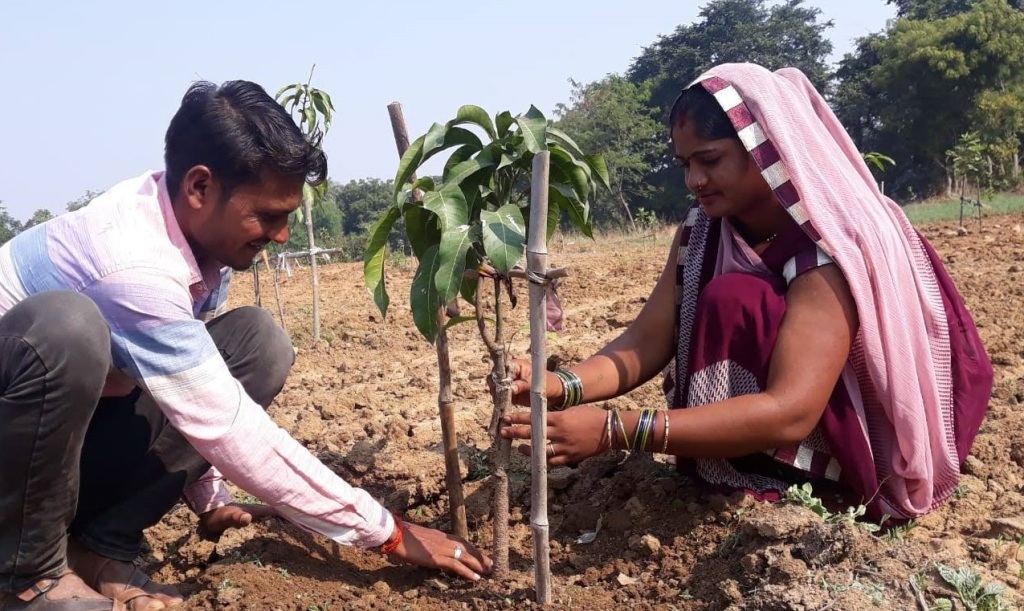
Challenges & Mitigation Strategy
The SBC approach focuses on communication as well as advocacy and facilitating an enabling environment. Therefore, awareness and capacity building on SBC concepts was done with SENU project partners. Moreover, SBC is a wide umbrella and encapsulates not only an individual’s ecosystem but of its own too. Activities under the SBC driven approach cannot standalone. Therefore, supportive strategies/interventions were also recommended to strengthen the project and the policy.
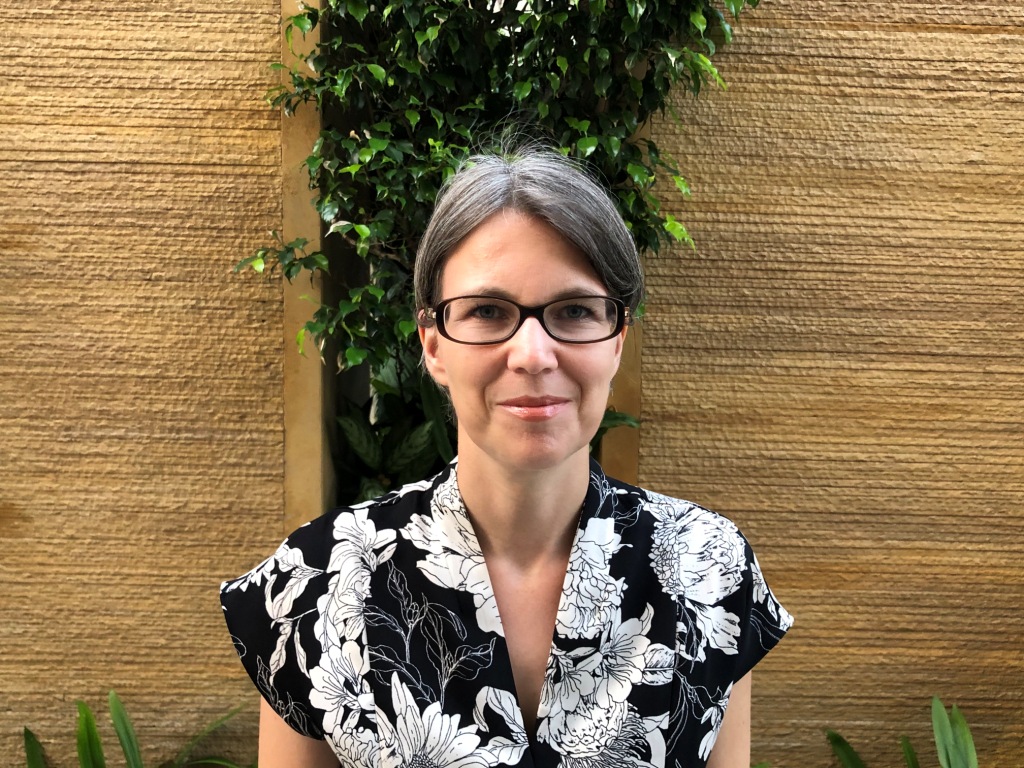
“Adopting a Social and Behaviour Change approach makes it possible to tailor policy or project measures more specifically to the needs and contexts of the target groups, with the aim to enable them to adopt and sustain positive behaviours. SBC thus helps to make those measures more effective and efficient.”
Dr Susanne Milcher, Project Head, SENU project India, GIZ




